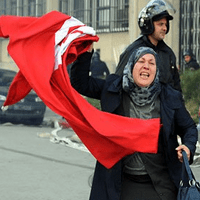One of the main causes of the uprisings in Tunisia and Egypt was the frustration that millions of Tunisians and Egyptians felt with the state of their economies. Among their many grievances, citizens of both countries were especially fed up with inequality, high unemployment and corruption. Yet the uprisings have led to a further deterioration of economic conditions in both countries. International tourists are staying away, and tourist facilities have laid off thousands of workers. Increased economic uncertainty has also led international investors to stay away for now. To make matters worse, some labor unions have taken advantage of the new political environment to go on strike and demand higher wages. As a result, manufacturing activity and some public services have also suffered.
As Egypt and Tunisia move forward with their democratic transition, these economic problems may escalate into a full-scale economic crisis that could lead to further social unrest and undermine the democratic reforms that these countries are working so hard to implement. If youth unemployment does not improve and thousands of workers and small-business owners cannot feed their families, their frustration will make them vulnerable to radical ideas and create a fertile ground for political opportunists. Not only could extremists and radical politicians undermine the democratic process, but they might also push for radical economic policies -- such as confiscation of private property or a return to state control over large segments of the economy.
There is also a risk that the worsening economic conditions will undermine the economic reforms carried out over the past three decades. To be sure, these reforms were badly implemented and deliberately manipulated by authoritarian leaders in many Arab countries. Nonetheless, they also produced some positive results that should not be ignored. For example, financial and judicial reforms created a more hospitable environment for foreign investment in Egypt, Jordan and Tunisia, among others, with the flow of foreign capital to these countries increasing as a result. Most Arab countries have also enjoyed more price stability in recent years than in earlier periods.

